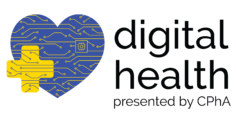Digital Health Corner Editor: Parisa Vatanka, PharmD, CTTS

Prediabetes is a major public health problem, and pharmacists can be part of the solution. Programs that embrace digital solutions like telehealth can address barriers to participation. They can be a tool in addressing this public health crisis. Programs that include accessibility and flexibility and address language needs can help participants overcome common barriers. Currently, accessibility is the most common barrier.
The National Diabetes Prevention Program is an evidence-based program through the Centers for Disease Control and Prevention (CDC) aimed at decreasing the progression from prediabetes to diabetes. It is a 12-month lifestyle change program focusing on behavior change. It has shown a 58 percent reduction in the development of diabetes for those who participate.1 The program includes health coaching by highly trained lifestyle coaches. The lifestyle coaches follow a CDC-approved curriculum and a peer support group.
Studies have shown long-term benefits of using a lifestyle change program. Participants are one-third less likely to develop diabetes even 10 years after the program. Those who do develop diabetes have a delay in onset by at least 4 years.2
The evidence is clear that this program works, but participation remains an issue. The reasons for this are many of the same reasons we see as barriers to healthcare. People may not be able to participate because there is not a program in their area or because they do not have a way to get to the site. There are external factors that can affect an individual’s ability to participate as well, such as scheduling or childcare issues. And finally, language can be a significant barrier to participation. We can help address these issues. Participants can have access to lifestyle change coaches by phone and online modules available in both English and Spanish.
Without intervention, people with prediabetes will usually develop diabetes within 5 years of diagnosis. Most adults in the U.S. with prediabetes don’t even know they have it! Approximately 88 million people in the U.S. have prediabetes, and 8 in 10 of those do not even know they are at risk.3 Awareness is a significant barrier to care. This CDC risk test is a screening tool that can be administered remotely, on-site, or through an app in multiple languages. The risk test screens those who may be at risk for developing type 2 diabetes.
Pharmacists can play a critical role in addressing prediabetes. We know that pharmacists have a lot of experience in public health. Pharmacists have been immunizing and providing for other public health needs for decades. In the current public health emergency, pharmacies have stepped up to address the public health of our nation through testing, educating, and vaccinating, as well as helping patients control conditions that put them at risk for worse outcomes with COVID-19.
Pharmacists continue to be the most accessible healthcare providers. They are uniquely positioned to help address the challenges with prediabetes and diabetes, which can be enhanced with digital solutions such as remote monitoring and the use of telehealth visits to check the progress of the patient.
Using tools such as texting, email, or push notifications can give you the opportunity to teach and screen many more people than could ever be reached through an in-person visit to a pharmacy or health system. These digital tools can be leveraged to move the needle on prevention, chronic disease management, and accessibility.
References
- National Institute of Diabetes and Digestive and Kidney Diseases. Diabetes Prevention Program (DPP). Available at https://www.niddk.nih.gov/about-niddk/research-areas/diabetes/diabetes-prevention-program-dpp
- Diabetes Prevention Program Research Group. 10-year follow-up of diabetes incidence and weight loss in the Diabetes Prevention Program Outcomes Study. Lancet. 374(9702), 1677–1686. https://doi.org/10.1016/S0140-6736(09)61457-4
- Centers for Disease Control and Prevention. National diabetes statistics report: estimates of diabetes and its burden in the United States, 2020. Atlanta, GA; US Department of Health and Human Services, Centers for Disease Control and Prevention, 2020; Available at: https://www.cdc.gov/diabetes/data/statistics/2014StatisticsReport.html
Sandra Leal, PharmD, MPH, FAPhA, CDCES serves as Executive Vice President for SinfoníaRx, a Tabula Rasa HealthCare Solution, and is the 166th President of the American Pharmacists Association. She has served as past chair and current member of the National Center for Farmworker Health and the Association of Clinicians for the Underserved. Additionally, she serves on various work groups with the American Diabetes Association that highlight the impact that pharmacists can have on improving the care for people with diabetes. She has published and presented her work in numerous national and international publications and venues addressing issues related to underserved communities.
Nicole Scovis, PharmD, BCPS, BCACP is the Director of Strategic Growth for Tabula Rasa HealthCare. Throughout her career, Dr. Scovis has advocated for the highest clinical practice standards through development and maintenance of clinical pharmacy programs. Dr. Scovis has been recognized for her contributions to the profession, serving on the faculty at the University of Arizona College of Pharmacy for over 10 years and receiving both the Pharmacist of the Year and Exemplary Patient Care awards from the Arizona Pharmacy Association. In her current role, her focus is on the development of financially sustainable clinical pharmacy models that provide optimal outcomes for patients.

